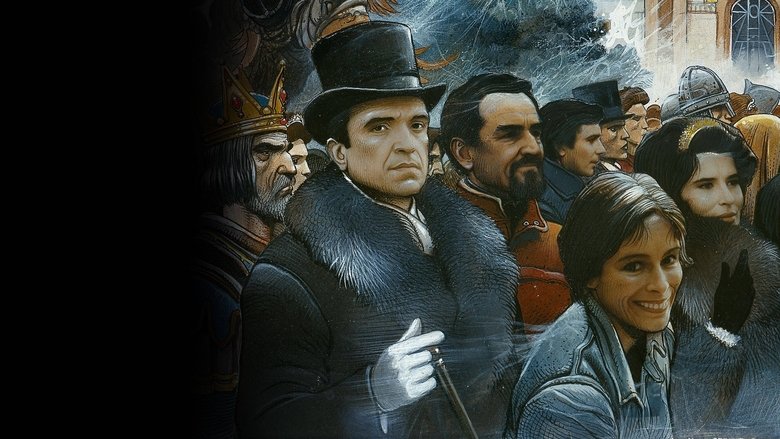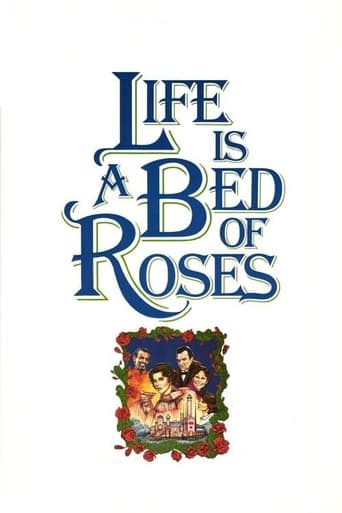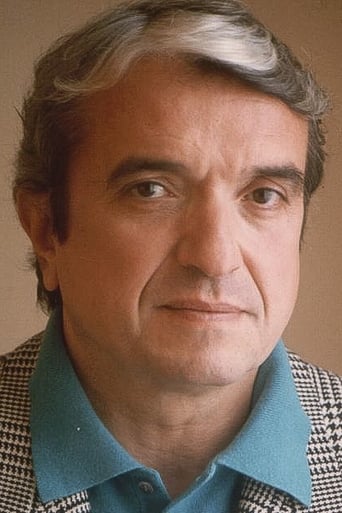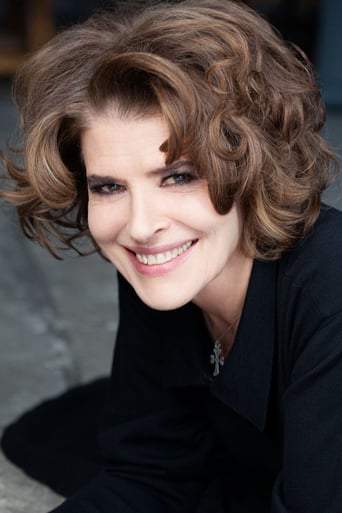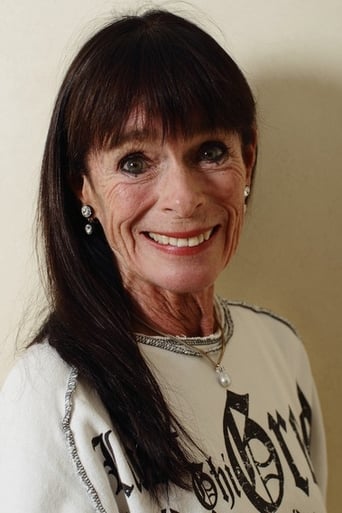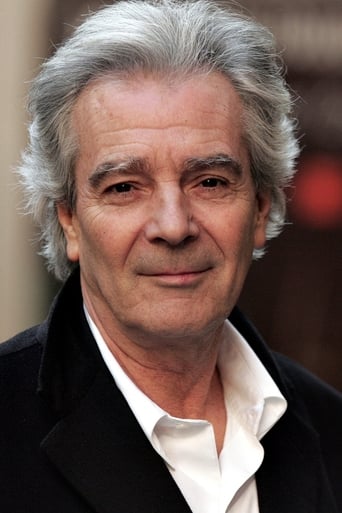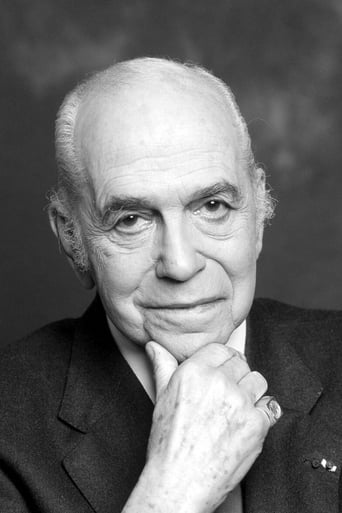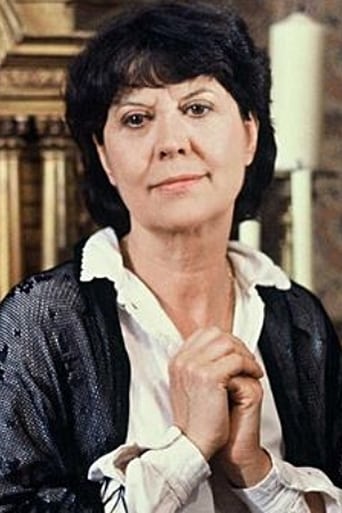Watch Life Is a Bed of Roses For Free
Life Is a Bed of Roses
In this whimsical fable, Resnais deftly interweaves three story lines: the creation of an early-20th-century utopia; romantic high jinks at a school conference; and a fantasy sparked by F/X pioneer Georges Méliès.
| Release : | 1983 |
| Rating : | 6.2 |
| Studio : | Soprofilms, Films A2, Les Films Ariane, |
| Crew : | Production Design, Production Design, |
| Cast : | Vittorio Gassman Ruggero Raimondi Fanny Ardant Geraldine Chaplin Sabine Azéma |
| Genre : | Drama Comedy |
Watch Trailer
Cast List



Reviews
Good story, Not enough for a whole film
It's hard to see any effort in the film. There's no comedy to speak of, no real drama and, worst of all.
Wow! What a bizarre film! Unfortunately the few funny moments there were were quite overshadowed by it's completely weird and random vibe throughout.
I wanted to like it more than I actually did... But much of the humor totally escaped me and I walked out only mildly impressed.
Resnais explores the concept of Utopia in three, intermingled timelines in this musical comedy. Actually, the film is so confusingly told that I had to read up on it a little before understanding it. Generally, though, it's a pretty enjoyable little film. In the modern timeline, a group of educators gathers at a castle at a symposium for alternative education. Geraldine Chaplin makes a bet that she can get the shy Sabine Azema to fall in love with Pierre Arditi. Vittorio Gassman also co-stars in this timeline. Another plot line follows the builder of that castle (Ruggero Raimondi) as he attempts to create a Utopian society after WWI. Fanny Ardant co-stars in that timeline. The third section is kind of an operatic fantasy. The production design is really neat, but I was at a loss as to what was going on there until very near the end of the film, where it became a bit clearer. The film is occasionally a musical, and the music is pretty decent.
Alain Resnais directs three parallel stories that have to do with fantasy and imagination in the adult world. In one of them is a sort of Operatic bordello story where a rejected architect attempts to manipulate a group of people into throes of happiness--only his attempt misses it's only real target, the woman that he pines after. In the same unfinished château he built, a group of teachers search for love in a more modern story, as one woman believes ineffably in the role of romance and the cynical anthropoligist tries to teach her a lesson by setting her up with the biggest jerk in the group. Meanwhile, a bunch of kids fantasize a George Melies-like adventure of a prince that saves a girl in distress from swamp creatures and then kills the evil king, bringing upon the kingdom of love. The two primary themes? Life is a fairy tale, and Life isn't a fairy tale.Which sounds better than the movie actually is. Resnais is the type of director where oftentimes the concept is good or bad, but the exposition is what matters; here, the concept is great but the movie is downright painful to watch. Horridly off-tune songs, bubbly characters without an ounce of dimension, backdrops of sickening pastel--instead of giving your inner child an ice cream cone, Resnais drowns it in a bucket of cake frosting. Add some French philosophy and you get a weird witches brew, one that doesn't bubble bubble toil and trouble, but just kinda sits wrong in your stomach until you want to regurgitate it.Resnais is a risk-taking director, and even in his worst you can see he's trying something that might not work with full clarity of action. In I Want to Go Home, he manages to pull past annoying characters and ditzy set-pieces by showing some real change and having a moment few moments of quiet to catch his breath. Here he submerges directly into a fantasy that doesn't really reflect fantasy, only its baby's room wallpaper reference. The biggest problem is that he somehow managed to make a movie more flamboyant than an 80s pop video, and more kitsch than Golden Era Hollywood musicals. The fantasies are beyond childish and naive, but the movie (with nudity and profanity) is definitely aimed for adults, a target he decidedly missed.However, he sticks closely to his theme and never backpedals. If anything, this movie is impressive simply because its unapologetic.--PolarisDiB
ALAIN RESNAIS'S film ''Life Is a Bed of Roses'' is nothing if not elliptical.''Life Is a Bed of Roses,'' which was written by the distinguished screenwriter Jean Gruault, can indeed be humorous. But it's liable to prompt at least as much head-scratching as laughter. Mr. Resnais and Mr. Gruault, who also collaborated so much more successfully on ''Mon Oncle D'Amerique,'' have made a far more precious and facetious film this time, one whose purposes are often far from apparent. In fact, their methods have become indirect to the point of near-perfect obliqueness.''Life Is a Bed of Roses'' exists on three levels, each of a deliberate - and at times quite delightful - eccentricity. First of all, there is a World War I scenario, if ''scenario'' can properly describe the screenplay's bizarrely theatrical style. The wealthy Michel Forbek (played by the opera singer Ruggero Raimondi) announces plans to build what he calls ''The Temple of Happiness,'' a fanciful palace that is never completed.Enough of this cheerfully weird structure is erected, however, for Forbek to stage an experiment therein. A group of his friends is isolated in the palace, dressed in flesh-colored silk robes and delicately coaxed back into an infantile innocence, or at least that is Forbek's intention. Cries of ''Love! Happiness!'' accompany the experiment, since most of the film's characters have the habit of bursting into saccharine song.At what seems to be the present time, a different congregation assembles on the same spot. The castle has now become an educational institution, with a staff that praises the place as ''typical of early 20th-century symbolist architecture.'' A dashing architect (Vittorio Gassman) has another opinion. ''Is that thing edible?'' he asks. ''It's not architecture, it's pastry.'' Attending a weekend conference is a very naive creature who happens to be named Miss Rousseau (Sabine Azema), and who sweetly sings ''The man I'll fall in love with is not a bar of soap.'' (This is not the complete nonsequitur it sounds like.) Also on hand is Nora Winkle (Geraldine Chaplin), an American who appears dressed for combat and who makes a wager that she can orchestrate a love affair between two of the other participants. Nora, we are told, has ''dared to masquerade as a man and work in minus-81-degree weather to write the revolutionary report 'The Sexual Fantasies of James Bay Workmen.' '' Hers is by no means the most peculiar research represented here, since Robert Dufresne (Pierre Arditi) uses toys and frantic mocking gestures in his work with children. ''You have perfectly conveyed the substance of your work,'' remarks Robert's superior approvingly after a lunatic 10-second demonstration.Also woven through ''Life Is a Bed of Roses'' is a medieval pageant, pitting a king against a heroic young warrior in a fanciful landscape.Although ''Life Is a Bed of Roses'' has a deliberately distancing, non-realistic style, and although its uniquely skewed logic effectively prevents the audience from trying to regard it rationally, the film winds up more purely confounding than can have been intended. Arch little asides, like the abundant choral flourishes, cannot help but feel pointless without a clear sense of what they are departures from .The film's ''variations on the theme of dominance,'' as Mr. Resnais described them, seem incompletely expressed. Despite the film's handsome look and its fine cast (Fanny Ardant also appears as a key figure in the World War I experiment), it's more memorable for various isolated witticisms and images than it is as a coherent whole. And its flightier touches can be deadly.About the title, Mr. Resnais explained that ''Life Is a Novel'' is its French equivalent. French parents, he said, often tell their children that ''life is not a novel,'' in the same way that American parents declare ''life is not a bed of roses.'' For anyone wondering how pointlessly knotty the film itself can become, that's a fair indication.
A utopian experiment around the time of World War 1 is contrasted with an educational concourse/seminar of today. Both experiments look at idealistic solutions for the problems humans have of living with one another. Both experiments are "polluted" by idealism itself and by the very real human beings who take part in the experiments. Making a movie about philosophy is strange enough.... but this movie is a MUSICAL... and the music is lovely. The most interesting thing is that the tragedy and madness of the first experiment is contrasted with the comedy of the failure of the second experiment to make a broad statement about the inevitable failure of idealism in a world of fallible human beings. This technique is similar to Griffith's cutting in Intolerance.... Even as you laugh at the comedy, you can see how easy it would have been to fall into tragedy. The film is a perfect delight that sticks with you. The two utopian experiments are contrasted with a medieval story that seems to comment on the other two stories....In fact, the medieval story is an idealistic view of the world as the children see it. So there are, in fact, three ideals contrasted. This makes for a very complicated structure which you may ignore if you just want to watch the interactions of the characters or listen to the delightful music.
